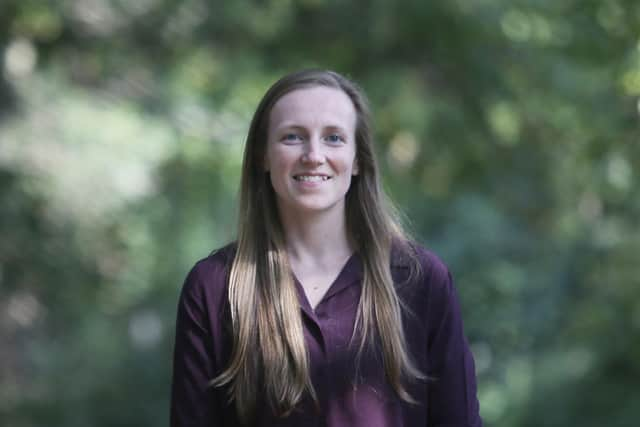Book review: Not the End of the World, by Hannah Ritchie
The doom-laden narrative around environmental crisis often feels inescapable. Whether it’s the political failure of another summit or the personal failure to go vegan (again), the overriding sense is that we’re not doing enough and it’s all too late. Each new freak weather event seems only to confirm this.
So the first book by young Scottish data scientist Hannah Ritchie is a welcome breath of fresh air. Falkirk-born Ritchie, who was named Scotland’s Youth Champion in 2022, argues that things have already improved, and further change is possible, even up to full sustainability. As lead researcher at the website Our World in Data and an academic at the University of Oxford, she cheerfully crunches numbers to back up everything she says.
Advertisement
Hide AdRitchie admits that, when studying Environmental Geoscience at Edinburgh University in the Noughties, she felt “helpless” herself and nearly abandoned the field. Her inspiration was Swedish physician and statistician Hans Rosling, who challenged the narrative on global poverty using data to show how much had improved. She hopes to do the same for the environment.


In clear, businesslike writing, she deftly debunks sensationalist stories, helping us better understand the hard numbers. Breaking the environmental crisis down into seven categories – air pollution, climate change, deforestation, food, biodiversity, ocean plastics and fish – she draws attention to what has already been achieved, and the potential for further change.
Air pollution in Britain has been reduced by 98 per cent since the 1970s. The hole in the ozone layer is shrinking. Technology has made low-carbon energy widespread and affordable. If China can reduce air pollution by 55 per cent in seven years, and Brazil reduce deforestation by 80 per cent in a similar period, rapid, effective change is possible. And, she argues, this can be achieved without major compromises to prosperity and lifestyle.
The book is particularly useful in clarifying the changes which are most important: stop eating beef and switch to an electric vehicle, but “stress less” about whether it’s worse to use a paper towel or an electric hand dryer. However, not everything she says will be popular with the most committed environmentalists. She is in favour of nuclear power and GM crops, skeptical of biofuels and points out that shopping local and organic will not necessarily help lower your carbon footprint.
The key argument is that we all still need to act. It might be within our capacity to achieve a sustainable world, but that still requires swift and radical change. And as well as making changes ourselves, we need to demand change from our governments.
This is where the book falters. Idealism and cheerfulness alone will not shift intransigent politicians, or persuade the general populace to accept “a carbon tax on everything we buy”. It would be too bad if this were to prove the Achilles’ heel to a convincing argument presented with welcome clarity and good sense.
Not the End of the World: How We Can Be the First Generation to Build a Sustainable Planet, by Hannah Ritchie, Chatto & Windus, £18.99.